Jieyi Tan
Towards Privacy-preserved Pre-training of Remote Sensing Foundation Models with Federated Mutual-guidance Learning
Mar 14, 2025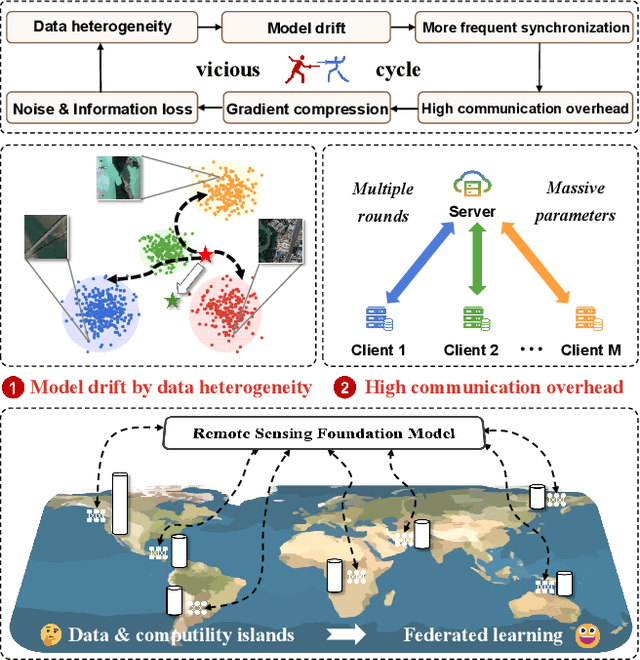
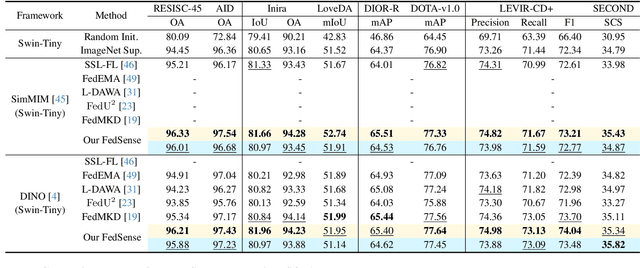
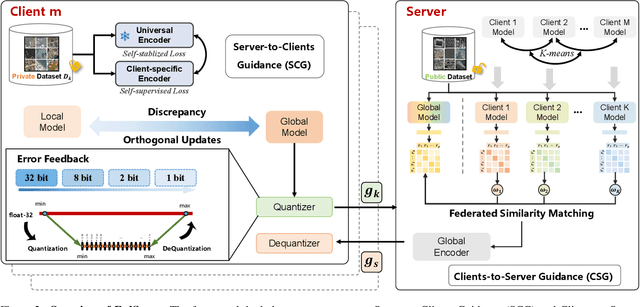
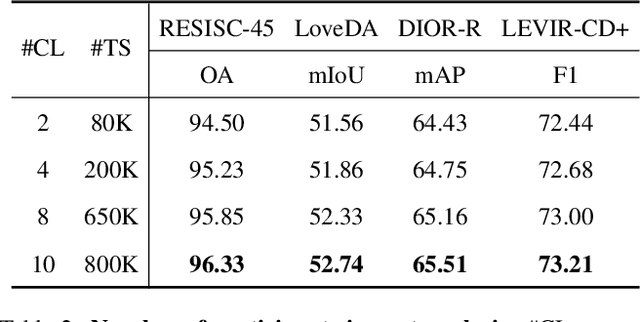
Abstract:Traditional Remote Sensing Foundation models (RSFMs) are pre-trained with a data-centralized paradigm, through self-supervision on large-scale curated remote sensing data. For each institution, however, pre-training RSFMs with limited data in a standalone manner may lead to suboptimal performance, while aggregating remote sensing data from multiple institutions for centralized pre-training raises privacy concerns. Seeking for collaboration is a promising solution to resolve this dilemma, where multiple institutions can collaboratively train RSFMs without sharing private data. In this paper, we propose a novel privacy-preserved pre-training framework (FedSense), which enables multiple institutions to collaboratively train RSFMs without sharing private data. However, it is a non-trivial task hindered by a vicious cycle, which results from model drift by remote sensing data heterogeneity and high communication overhead. To break this vicious cycle, we introduce Federated Mutual-guidance Learning. Specifically, we propose a Server-to-Clients Guidance (SCG) mechanism to guide clients updates towards global-flatness optimal solutions. Additionally, we propose a Clients-to-Server Guidance (CSG) mechanism to inject local knowledge into the server by low-bit communication. Extensive experiments on four downstream tasks demonstrate the effectiveness of our FedSense in both full-precision and communication-reduced scenarios, showcasing remarkable communication efficiency and performance gains.
Bridging Data Islands: Geographic Heterogeneity-Aware Federated Learning for Collaborative Remote Sensing Semantic Segmentation
Apr 14, 2024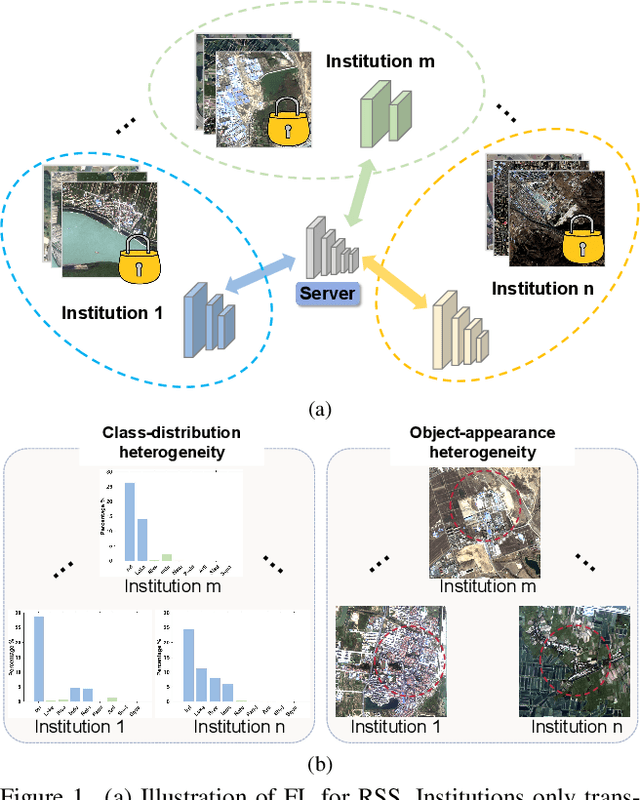

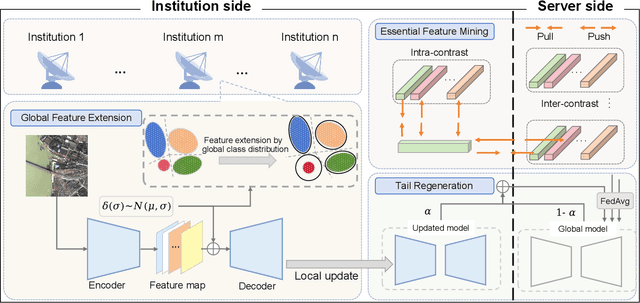

Abstract:Remote sensing semantic segmentation (RSS) is an essential task in Earth Observation missions. Due to data privacy concerns, high-quality remote sensing images with annotations cannot be well shared among institutions, making it difficult to fully utilize RSS data to train a generalized model. Federated Learning (FL), a privacy-preserving collaborative learning technology, is a potential solution. However, the current research on how to effectively apply FL in RSS is still scarce and requires further investigation. Remote sensing images in various institutions often exhibit strong geographical heterogeneity. More specifically, it is reflected in terms of class-distribution heterogeneity and object-appearance heterogeneity. Unfortunately, most existing FL studies show inadequate focus on geographical heterogeneity, thus leading to performance degradation in the global model. Considering the aforementioned issues, we propose a novel Geographic Heterogeneity-Aware Federated Learning (GeoFed) framework to address privacy-preserving RSS. Through Global Feature Extension and Tail Regeneration modules, class-distribution heterogeneity is alleviated. Additionally, we design an Essential Feature Mining strategy to alleviate object-appearance heterogeneity by constructing essential features. Extensive experiments on three datasets (i.e., FBP, CASID, Inria) show that our GeoFed consistently outperforms the current state-of-the-art methods. The code will be available publicly.
 Add to Chrome
Add to Chrome Add to Firefox
Add to Firefox Add to Edge
Add to Edge